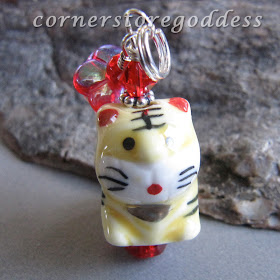Long ago, in Egypt, the children of Israel were doing well. They had babies and worked and were successful. Pharaoh, who was the King of Egypt, believed that the Israelites were becoming too powerful. He made them slaves, and forced them work in rock quarries and to build cities and pyramids and roads.

In spite of this, the Israelites continued to multiply. New babies were born all the time. So Pharaoh came up with a new plan. He announced that every Hebrew boy baby should be killed.

When Moses was born, in order to save him, his mother hid him in a little floating basket, which she hid in the river reeds. His basket was bobbing there when Pharaoh's daughter appeared for her bath.

She saw the bobbing baby, took him home to her palace, and named him Moses, which means "drawn from the water." Then she hired Moses' mother, Yocheved, to be his nanny. Yocheved raised Moses and taught him all about his Jewish heritage. Moses grew up to be a great man among the Egyptians. But Moses knew he was a Hebrew, and he saw how badly the Hebrews were treated. He tried to help them, without much success, and eventually left Egypt and became a shepherd, tending sheep belonging to a man named Jethro. Eventually Moses married Jethro's daughter.
One day, while Moses was out with his sheep, G-d spoke to him, in the form of a burning bush. G-d told Moses to rescue his people from the Egyptians. Moses was pretty sure this was impossible. He had tried before, without success. But G-d promised to help Moses. To show Moses all that he could accomplish with G-d's help, G-d turned Moses' rod into a serpent. Then G-d told Moses to pick up the serpent by its tail. Moses did, and the serpent turned back into a rod.

G-d showed him another sign, but Moses was still dubious, and more than a little tongue-tied. He was pretty sure Pharaoh wasn't going to listen to a tongue tied shepherd with a rod that turned into a snake, so G-d sent Moses' brother Aaron along to be a spokeman. Moses, by now, was 80 years old, and Aaron was 83. But they had a job to do, so back to Egypt they went.
There they called a meeting of the Israelites. Moses told the Israelites what G-d had commanded him to do, and performed the miracles that G-d showed him. This convinced the Israelites that Moses was the real deal, sent by G-d.
Next Moses and Aaron paid a visit to Pharaoh. They told him about G-d's command, and said, "Let my people go!" Pharaoh was not impressed. In fact, he was angry, and complained that Moses and Aaron were keeping the Israelites from working. Then Pharaoh treated the Israelites worse than he treated them prior to Moses and his miracles.
But Moses had faith in G-d. He performed all the miracles G-d taught him, before Pharaoh himself. Again he said, "Let my people go!" Still Pharaoh refused to let the Israelites leave.
Moses was getting desperate. He turned the waters of the rivers into blood. Then he sent armies of frogs hopping all over the land and though the houses, doing all sorts of damage. When that didn't work, Moses brought locusts and other insects to go after the people. They caused disease not only in the Egyptians, but in their beasts of burden. Still Pharaoh did not listen.
G-d was getting a little impatient. He commanded Moses again, and this time he brought worse plagues on the Egyptians. Pharaoh still didn't give up. So G-d sent the worst plague of all: the first born of every Egyptian family, and the first born of the animals of their flocks, died. The Israelites, who were doing a lot of praying, were spared.
This finally got Pharaoh's attention. Terrified, he turned the Israelites loose. They needed to leave quickly. They got together and ate roasted lamb and bread which had not had time to rise ~ matzoh.

When the sun rose on the 15th day of the Hebrew month of Nissan,

the Jewish nation headed for the land of Canaan.

This was called the Exodus. G-d guided them with a cloud that looked like a pillar of fire at night.
After three days, Pharaoh forgot how frightened he had been. He put together an army and started after the Israelites. By the time the Israelites reached the Red Sea, Pharaoh and his army were hot on their heels. G-d stepped in again. He told Moses to stretch his rod, which was once a serpent, over the Red Sea. When Moses did this, the waters parted, making huge walls of water on each side. The Israelites passed through in safety.

When Pharaoh and his army followed, they drowned.
The Israelites, seeing that they were safe, sang a song of praise to G-d before hitting the road again.
Their troubles were far from over. They had no bread, and no meat. They began to complain to Moses. Why had he brought them to a land where there was not enough food? But G-d was watching out for them. He sent them quails and manna, which they used as bread. When they wanted water, Moses hit a rock with his rod, and water poured out - enough for all the thirsty people and their animals.

All through the desert, as the Israelites traveled, heading for the promised land, G-d took care of them.

Moses became their lawgiver,

receiving his commandments directly from G-d.

Finally the children of Israel were free.

The story of Passover reminds the people of the Jewish nation of the history,

and reminds them that the ultimate goal is to be “a light unto the nations.

The bracelet can be found
here.














































